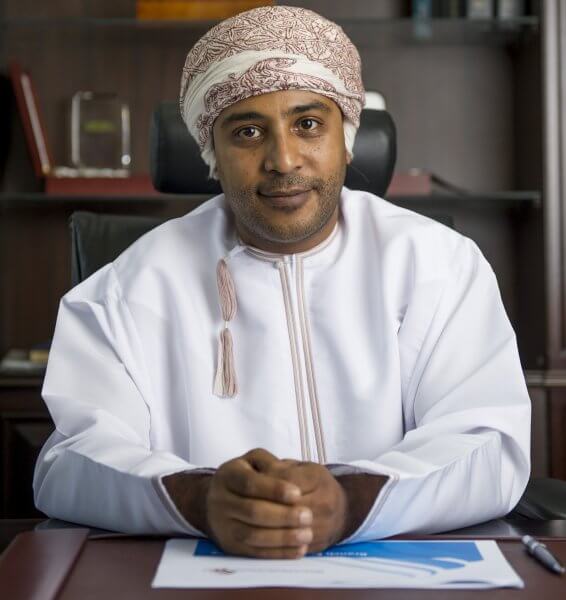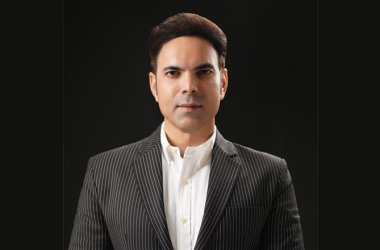National Bank of Oman practices what it preaches in terms of innovation, and has implemented over half of the ideas pitched at its annual, employee-driven Ibtikar Innovation Day over the last five years. Acting CEO Sayyid Wasfi Jamshid Al Said told tahawultech.com why NBO is pushing its employees to think and work differently.

What do you think of the ideas that were pitched at this year’s edition of Ibtikar Innovation Day?
I think it’s the best Ibtikar I’ve seen so far. The ideas were crisp, innovative and simple – very to the point. That’s what we want to see. It’s about simplicity and making things easy for the customer, and how you can think beyond what the customer might think about themselves. We have to get ahead of the curve. At the end of the day, we’re all banking customers. There’s nothing strange about them. We can take inspiration and ideas from what we ourselves expect when we deal with a bank.
These ideas can trigger a broader thinking pattern which would never come from a top-down working culture. It helps you to constantly challenge assumptions. We mustn’t hold onto assumptions for too long because will get found out. Like Mike Tyson said, everyone has a plan until they get punched in the mouth.
How has Ibtikar already contributed to the bank’s transformation journey?
Over the last four years we’ve seen over 60 ideas that have been pitched, and 32 of those have been implemented within the bank, which is a very good hit rate. Most of these serve as enhancements to our existing products.
Our staff who want to better themselves, who want to contribute and are excited by progress are stars in the making. We’ve seen people come out of their shells because of this initiative. It helps them to play a part in shaping what NBO can be.
Why is it so important to hold events like Ibtikar, and what do you think makes it such a unique platform?
I’m so pleased with what I’ve seen from this year’s edition. It’s the fifth year we’ve run Ibtikar, and it keeps getting better and better. The levels of passion, togetherness and positive energy are clear – and that’s what NBO is all about. That positive energy is not something you’ll see in many institutions like ours. Banks are normally thought of as stale and not really having a soul, but what we’ve seen with Ibtikar proves that’s absolutely not the case with NBO. That’s what makes us different.
We’ve also shown our approach to innovation with events like our external Hackathon and Innovation in SME awards, which are about identifying and harnessing positive energy and ideas. When we do that, good things tend to happen.
How does Ibtikar help to motivate participating employees?
When you start work from day one at a new company, you want to be engaged and participate in something that is special and energising. Platforms like Ibtikar do that and keep everyone engaged, and remind us of who we are as a bank. Those reminders are really important because you often get caught up in the day-to-day grind of getting stuff done or dealing with daily issues that inevitably come up. Our culture is evolving, but our staff already believe in NBO’s values, which makes it a lot easier.
The large number of young employees at NBO must bode well for its future.
It bodes very well. One of the teams participating in Ibtikar highlighted how young a population we have in Oman. The 16-35 age group is a maximum-energy age group, and we’re very focused on trying to connect with the youth. We have to listen carefully to the signals that they give us and what they tell us.
How will you ensure that NBO doesn’t just deploy technology for the sake of it, and that you will pursue the best possible technology projects?
We do everything in reaction to what we believe our customers want. We find that out in various ways. We try not to waste energy or money in pursuing the wrong things. That’s not to say we won’t be experimental – we will and we do that to encourage a culture of learning from mistakes. We do everything in-house and don’t use ready-made systems that could box us in, which can be a problem in this part of the world.
We’re about remaining agile and responsive. Our agility has got us here and I think that’s what will keep us ahead for the next 2-3 years. It comes down to having the right people who think in different ways and we will encourage the ability to make mistakes. I’m not just paying lip service to people being our greatest assets, but it’s something I believe deeply in.
The world’s changing quickly, and we need to react to that change where we can and ensure that we are agile. We make sure that every project and product that we launch are relevant to what customers want.
Do you believe that organisations have to do things differently, and if they don’t that they will be merely copying their competitors?
Innovation is important, and it’s great if you can have some innovations along your transformation journey. A lot of what you do will be stuff that others are already doing. In our case, this may not just apply to banking. We take a lot of our inspiration from outside of the industry. Some things are already out there and aren’t new, but we try to apply them to our own context. Doing something new and different that’s borne of ourselves is good for positive energy and momentum, and good things happen as a result of that.
Could emerging Fintech companies and existing technology giants pose the biggest threat to incumbent banks?
I recently read the story of Kakao Talk, a social media site in South Korea that decided to launch a banking platform. Within two hours of the launch it had 300,000 customers. Within a few weeks it had received millions of dollars of deposits, and now it has almost 10 million customers in a country of 50 million people. When you read that as a banking executive, it’s pretty scary stuff. We have to be aware of that, but my own view is that we won’t be disrupted completely as an industry. There might be some players within the industry that lag or are in denial, and then you end up like a BlackBerry, a Kodak or a Nokia. There will be some companies that become dinosaurs along the way but we won’t be one of them. I’m pretty sure the industry as a whole won’t become a dinosaur, but we have to adapt.
Fintech has its own issues around getting into banking. Banking is very much about underlying trust, technicalities and processes so the barriers to entry are very high. That being said, Fintech is definitely bringing something interesting to the table and rather than seeing it as a threat, I think we should embrace it and see how we can partner with the right ones.
Do you believe that banks often exaggerate their levels of innovation and they are actually very conservative in their approach to change?
I don’t know whether banks are even known for innovation. If you look at the banking industry, we’re probably behind many other industries that have taken on the digital evolution much quicker. I guess that’s to do with old-school cultures that exist within banking which have always worked. Banks have been good at making money, so why should they change? I think the answer to that is upon us – the choice they have is to change or die. I imagine the next five to 10 years will see some of the largest changes we’ve seen in the last century across all industries.
When we look at transforming ourselves digitally, we’re not competing against other banks, because I don’t think they have set a very high benchmark. We benchmark ourselves against players from other industries who have done this really well and have delivered a really good customer experience, which is what we aspire to.





